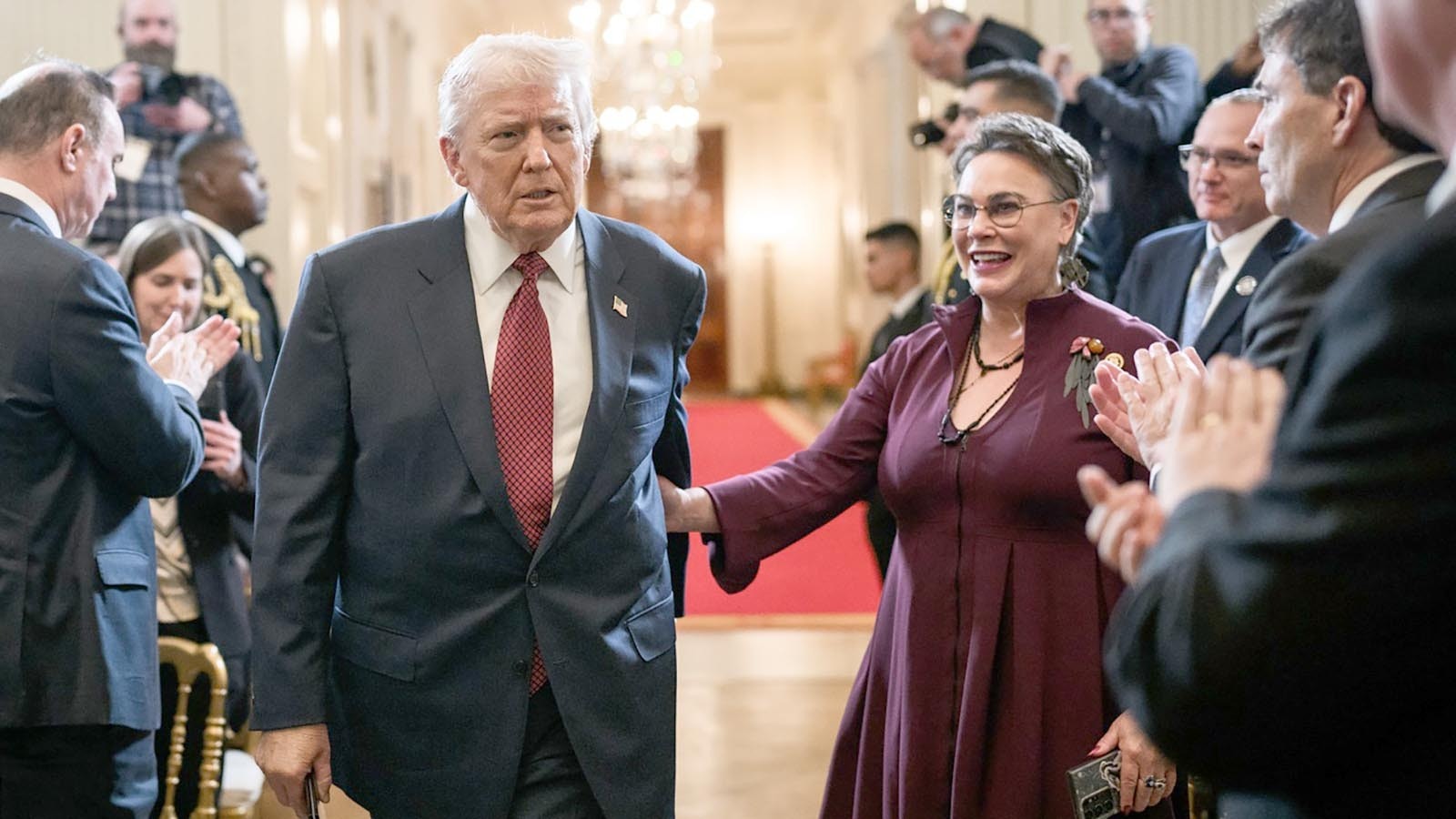With the growing interest in wind and solar energy development in Wyoming, the state’s people are due compensation if energy sites disrupt wildlife habitat, block migration routes and the like, a lawmaker said.
“If we’re going to develop world-class energy resources, they (companies) need to compensate us for our world-class wildlife resources,” Sen. Larry Hicks, R-Baggs, told Cowboy State Daily.
Hicks sponsored a draft bill calling for energy companies to pay compensation to the Wyoming Game and Fish Department for possible damages to wildlife.
The bill was discussed Thursday before the Legislature’s Joint Travel, Recreation, Wildlife and Cultural Resources Committee.
The committee declined to sponsor the bill. Hicks said he might try to individually sponsor it during the upcoming 2026 legislative session.
Since it’s a budget session, lawmakers can sponsor only three bills. Hicks said his docket is already full. But if another lawmaker decides to sponsor one of his other three bills, he’ll consider reviving his energy development/wildlife compensation bill.
Regardless, the topic isn’t going away, he said.
Others agreed.
Following Thursday’s discussion, committee co-chairman Rep. Andrew Byron Landen, R-Jackson, said that even if the time isn’t right for Hicks’ specific bill, it prompted a vital discussion.
“We’re, of course, going to hear from industry that they’re doing enough,” but as a member of the committee, he’s obligated to also consider the effects on wildlife.
Citing Process
Proposed renewable energy projects, like any major industrial undertaking, must be approved by the seven-member Wyoming Industrial Siting Council.
That council is advised by numerous state agencies, including Game and Fish.
The agency has personnel who investigate proposed sites for possible effects on wildlife and habitat, Game and Fish Director Angi Bruce told the committee.
Ideally, Game and Fish personnel and prospective developers identify potential problems early in the process and take steps to mitigate them, she told the committee.
There have been instances of that getting complicated with “out-of-state” wind and solar companies, Bruce said.
“What we see is a lot of these developers coming in from out of state. But they’re almost like house flippers. They do one piece of the process. They do the permitting, and then they sell it. And then someone does the construction, and then they sell it. And then those who are managing it is a different company,” Bruce told the committee.
“That’s when our job gets hard, because we’re just constantly revisiting with them and talking about what obligations they made,” she added.
Hicks’ draft bill called for compensation if a company’s actions went against Game and Fish recommendations, and damaged wildlife.
Or, if the scale and location of a project made damage inevitable.
Others told the committee that the bill, or similar legislation, could have a chilling effect on Wyoming’s economic development.
“This bill goes beyond the clarification process. It requires an additional payment from the applicant,” said Jody Levin, representing the trona industry and the Wyoming Mining Association.
Other state agencies might also take it to mean that “if Game and Fish can ask for an additional payment, we can ask for an additional payment too,” she added.
Chris Brown, representing Powering Up Wyoming, told the committee that without “regulatory certainty,” Wyoming could stand to lose major projects to other states.
A Payment To The People
Hicks said he’s determined to keep pushing for some sort of compensation for damage to wildlife, even if that means waiting for the 2027 legislative session to draft an entirely new bill.
“I’ve got more renewable industry in my district than anywhere else in Wyoming, but I won’t be intimidated by it,” he said.
He said it isn’t about creating a “money maker” for Game and Fish.
By Wyoming Statute, wildlife is a public trust. So from a legal standpoint, wildlife is the property of the people of Wyoming, Hicks said.
The Game and Fish functions as the steward of the public’s wildlife, he said.
“This would be compensating the people of Wyoming for the loss of their property,” he said.
It could provide an incentive for renewable energy companies to help protect wildlife; only a few “bad actors” would end up having to pay compensation, he said.
As for how compensation could be calculated, Game and Fish might have to come up with a formula, based on the estimated monetary worth of a big game animal, such as an elk, to the state, he said.
Mark Heinz can be reached at mark@cowboystatedaily.com.





